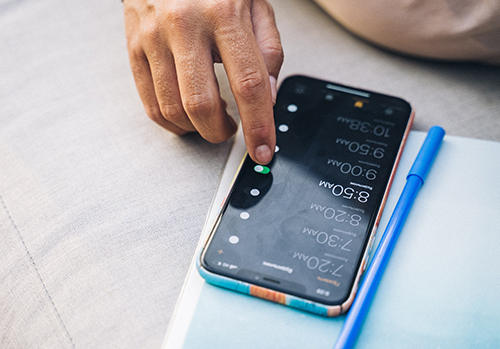
Photo by Anna Tarazevich on Pexels.
The video app TikTok was recently buzzing with ‘time blindness’ discussion. A user on the app made a video showing her crying on camera and expressing her frustration with a recent experience she had at a job interview. During the interview, the woman making the video asked the interviewer if they had any accommodations for people who struggle with time blindness and being on time. According to the poster, the interviewer began yelling at her. She told her if she struggled with being on time, she would have difficulty finding a job.
The woman in the video began to describe how that was unfair, and the video created a very divided discussion between the users on the platform. Some understood her plight, while others felt that accommodation was not necessary and that she needed to be more prepared.
With the time-blindness topic trending, it is worth looking into the truth behind the phenomenon to understand the nuances behind the conversation.
So, what is time blindness?
Time blindness is the inability to determine when time passes and guessing how long something will take to complete. According to Dr. Manos at the Cleveland Clinic, time blindness isn’t an official diagnosis. Instead, it is just the experience of losing track of time, which can be very extreme for some more than others. This situation is especially true for those with attention-deficit/hyperactivity disorder (ADHD). They are more susceptible to not paying attention to how time moves when focusing on something else.
It can represent itself in a few different ways, including:
- Chronically missing deadlines and arriving late.
- Difficulty making and sticking to a schedule.
- Constantly “losing track” of time.
- Feeling like time is “slipping away”.
How do you cope with time blindness?
The majority of the commenters on the viral TikTok video disagreed with the poster because they felt it was a personal responsibility to create accommodations that would help them work better with time. And since time blindness is more of a phenomenon, it is up to the individual to implement strategies they find helpful.
Be Intentional with Tracking Time. If time flies past you or is not on your mind, you need to keep it on your mind. There are time-tracking apps or spreadsheets that you can use to keep yourself on track when tasks have specific time frames. Soon enough, a time log will help you understand how much time you need to allot to specific types of tasks.
Use Timers. Our cell phones come with built-in alarms, and you should take advantage of them, especially if you tend to get lost in time when focused on an activity. Set an alarm for when you need to wake up. Set another alarm when you need to get dressed. Set a third alarm when you need to walk out of the house if you have to. This strategy will help you remember when your scheduled time ends and it’s time to move on to the next part of your routine.
Include Buffer Time. Having extra time worked into your agenda will allow you to avoid overloading your schedule for the day. This approach is necessary if you get distracted throughout the day. Having that extra wiggle room will help you deal with time blindness.
Have Health Insurance Questions?
We hope that this information on time blindness is helpful to you.
Insurance is oftentimes overwhelming, and we want to shed light on the industry by answering your questions. Comment below, and your question may be the topic of our next post!
If you liked this article, share it with your friends!
Empower Brokerage wants to help you find the insurance coverage you need and help you save money getting it. Stay on top of your health and give us a call at (844) 410-1320.
Get affordable health insurance quotes by clicking here.
See our other websites:

